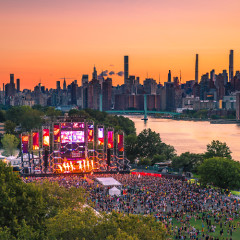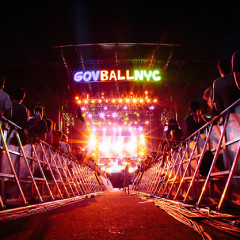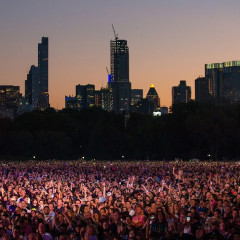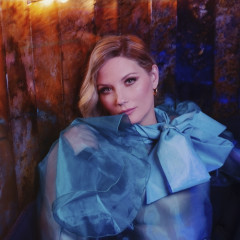Are music festivals relevant to the iPod generation? Bonnaroo ended last night, and the 75,000 fans who flocked to it suggest that festivals still serve a purpose. But as music becomes less about the zeitgeist and more about the niche, it's fair to ask how communal events like Bonnaroo fit into the fragmented landscape.
Festivals have changed to reflect a diffuse music culture. Bonnaroo used to be jam band central, a place for millennial hippie fringe mascots like the Dead, Phish and String Cheese Incident and their fans (who I hope can forgive my limited knowledge of the genre) to get baked by the sun and more earthbound paraphernalia.
That's why the Dave Matthews Band made sense as one of this year's three headliners, even though their seemingly decades-long reign as stadium concert superstars makes them inauthentic in the eyes of those who consider themselves more discerning music fans. (These snobs are probably the same folks for whom a DMB show was a white suburban American teen rite of passage.)
Despite changes in the nature of festivals, musicians see them as a bulwark against diminishing sales profits. Touring is more important than ever, the only guarantee of healthy profit margins in an industry battered by internet piracy. That's why Matthews & Co. shared top billing with Stevie Wonder (a legend) and Kings of Leon (a...something that went from vaguely indie-hipster to pop-rock MTV poster boy overnight), performers who might in someone's mind supplement DMB's music, but certainly don't make for a cohesive festival.
But neither the artist nor festival organizers care so long as they both make money.
As for the fans, different music attracts different crowds. And there's less integration at festivals than you might hope for, though who knows what went on in the Bonnaroo campgrounds (hint: not the participants). In the Times Bonnaroo writeup today, Jon Pareles mentions "a visible gray-haired contingent" in addition to "jam-band twirlers and flailers" who "are now joined by hip-hop and frat-party-style dancers" and "increasingly by more aloof hipster-style spectators."
But even if the disparate tribes mostly keep to themselves and the separate stages their favorite bands play, they at least remove their headphones for a few hours, which has to lead to some fusion and crossing over and maybe even hearing and liking something new.
If not, people can always bond by bitching about oppressive heat or torrential rain, two festival elements that never seem to change.

























.jpg)
.jpg)



.jpg)
.jpg)
.jpg)




